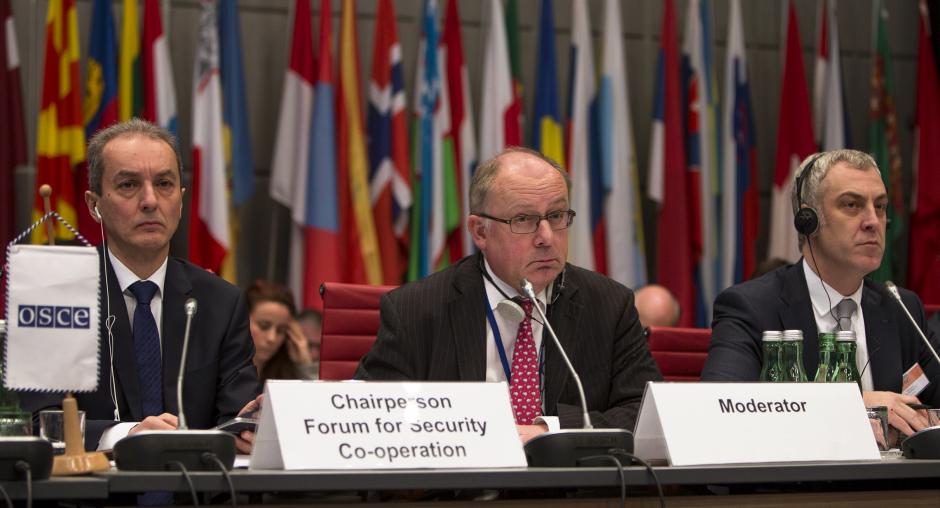Progress on modernizing the Vienna Document vital to making the agreement effective in current challenging security environment

VIENNA 1 February 2017 – The need to modernize the Vienna Document 2011 in order to adapt the agreement to current security challenges and technological change was discussed in the OSCE Forum for Security Co-operation (FSC) in Vienna today.
“The Vienna Document has been one of the strongest pillars for building trust and co-operation among the 57 participating States,” said OSCE Secretary General Lamberto Zannier in his opening remarks. He stressed that “for over twenty-five years, the Vienna Document through transparency and verification measures has played a major part in promoting predictability in the OSCE area.”
The Vienna Document, one of the main confidence- and security-building measures developed by the OSCE, requires participating States to share information on their military forces, equipment and defence planning. The agreement also provides for inspections and evaluation visits that can be conducted on the territory of any participating State that has armed forces. Reviewed periodically, the Vienna Document dates back to 1990 and has seen regular updates since then, the latest in 2011.
Zannier called for finding common ground and genuine commitment so as to make real progress in the debate on the many proposals that have been tabled for modernizing this unique confidence- and security-building tool. He stressed that participating States “must try to find ways to adapt it to meet the requirements of our time” and “use the momentum of our shared security concerns to start engaging in a meaningful manner.”
Ambassador Cristian Istrate of Romania, which currently holds the FSC Chairmanship, reminded the participating States that the modernization of the Vienna Document is one of the key priorities of the Austrian OSCE Chairmanship.
Referring to a declaration adopted at the OSCE Ministerial Council in Hamburg last December that underlines the importance of conventional arms control and confidence- and security-building measures, he spoke of “a new horizon of hope” and expressed confidence that the OSCE remains “a community of nations that, in spite of diverging assessments of the challenges we are currently facing, still value open and meaningful dialogue.”
The need to modernize the Vienna Document stems from the existence of new military capabilities, including the use of unmanned aerial vehicles, and the necessity to lower thresholds for notification of military activity to take into account smaller amounts of military forces and equipment with more powerful capabilities. An update is also needed to fill gaps that have been encountered in the document’s past usage, for example to provide new ways of dealing with risk reduction through the introduction of a mechanism to investigate facts after a military incident of a hazardous nature.
The Forum for Security Co-operation meets weekly in Vienna to discuss military aspects of security.
